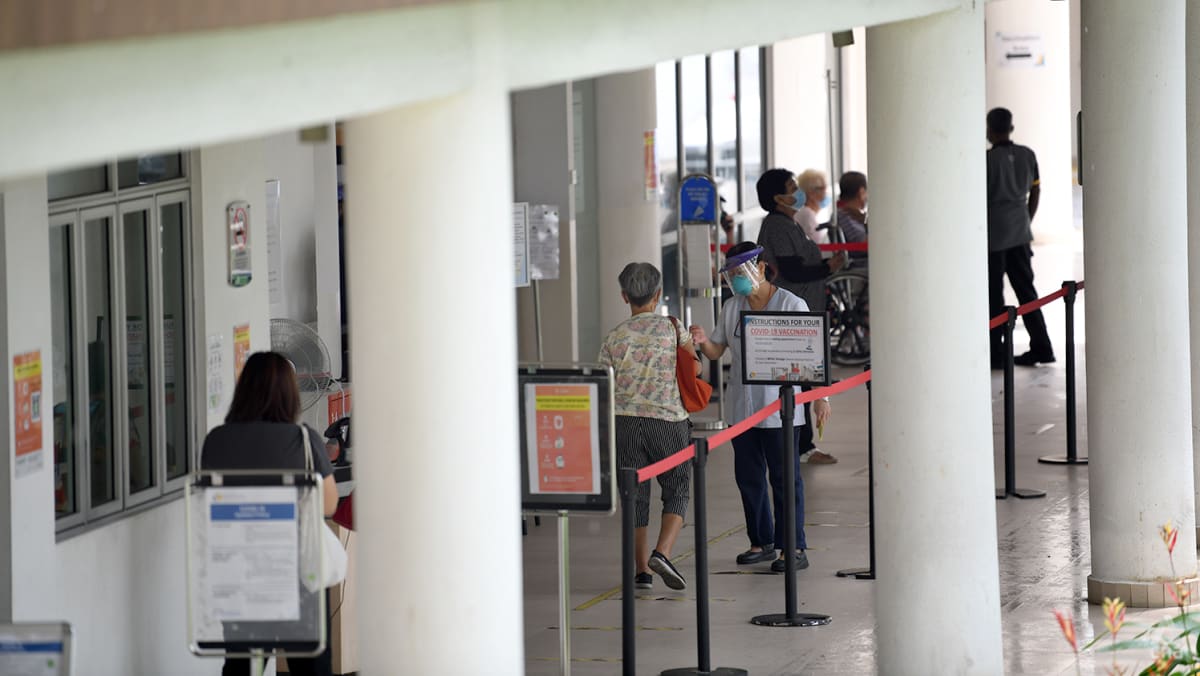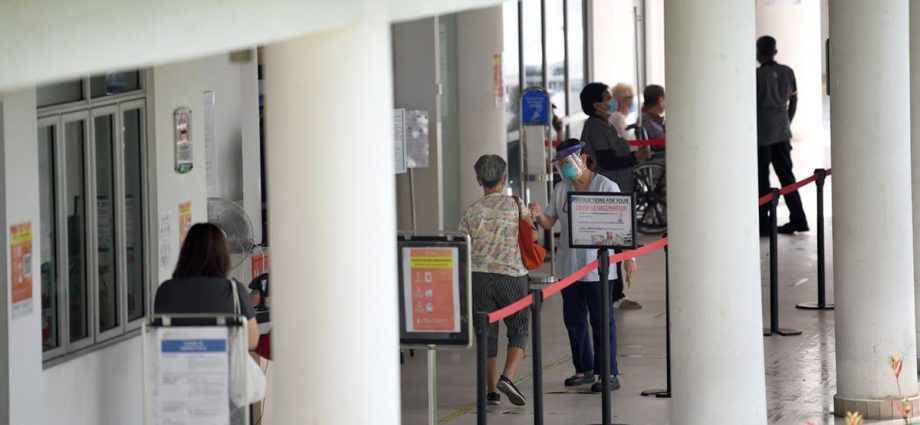
SINGAPORE: From Mar 1, it will no longer be mandatory for people to wear masks in some health settings that are considered lower-risk, said the Ministry of Health (MOH) on Thursday (Feb 29) as it adjusts Singapore’s COVID-19 measures.
“Mask-wearing will no longer be compulsory for patients, visitors and staff in outpatient settings, including polyclinics, general practitioner clinics, specialist outpatient clinics, dialysis centres, Traditional Chinese Medicine clinics and dental clinics,” said MOH.
“However, mask-wearing is still strongly encouraged for medically vulnerable persons, seniors and persons with acute respiratory infection (ARI) in these settings.”
Mask-wearing will still be required for higher-risk healthcare settings, such as inpatient wards, emergency departments and residential care facilities.
“We intend for this to be a standing requirement, to improve general infection control practices in these areas,” said the ministry.
“Inpatients of hospitals and residents of residential care facilities are not required to wear a mask. Nevertheless, as good practice, we encourage residents and inpatients to wear a mask if they are unwell or develop ARI symptoms.”
The ministry noted that it has been one year since the Disease Outbreak Response System Condition (DORSCON) level was adjusted to green.
“During this time, we have been living with COVID-19 as an endemic disease and weathered two major infection waves without the need to impose further restrictions,” it added.
UPDATED VACCINE RECOMMENDATIONS
Announcing updated COVID-19 vaccine recommendations, MOH said on Thursday that two initial doses of COVID-19 vaccines would be sufficient to ensure an essential level of protection, down from the current recommendation of three initial doses.
This is because most people would have had one or more COVID-19 infections and would have some underlying protection even if unvaccinated, said MOH.
Nevertheless, the ministry said people should still go for any additional doses being offered or recommended to them.
The guidelines are:
- Unvaccinated persons should receive two initial vaccine doses at an interval of eight weeks apart.
- An additional dose of an updated vaccine for 2024 continues to be recommended and should be administered around one year (and no earlier than five months) after the last dose received.
The additional dose is recommended for all persons aged 60 years and above, medically vulnerable individuals, and residents of aged care facilities.
Next-of-kin of residents of aged care facilities, such as nursing homes, are reminded to provide consent (if necessary) in a timely manner, if they intend to enable the residents to receive an additional dose of the updated vaccine.
The additional dose is also encouraged for all individuals aged six months and above, in particular healthcare workers, as well as household members and caregivers of medically vulnerable individuals.
In view of the “stable demand” for COVID-19 vaccination, MOH will cease operations at four Joint Testing and Vaccination Centres (JTVCs) – Ang Mo Kio, Jurong West, Pasir Ris and Yishun from Apr 1.
The five remaining JTVCs are located at Bukit Merah, Jurong East, Kaki Bukit, Sengkang and Woodlands.
“COVID-19 vaccinations will continue to be available at more than 200 participating Public Health Preparedness Clinics (PHPCs) and polyclinics located islandwide,” said MOH.
“We are working to bring in more GP clinics and polyclinics to offer COVID-19 vaccination, to ensure that COVID-19 vaccination remains accessible to the community.”

